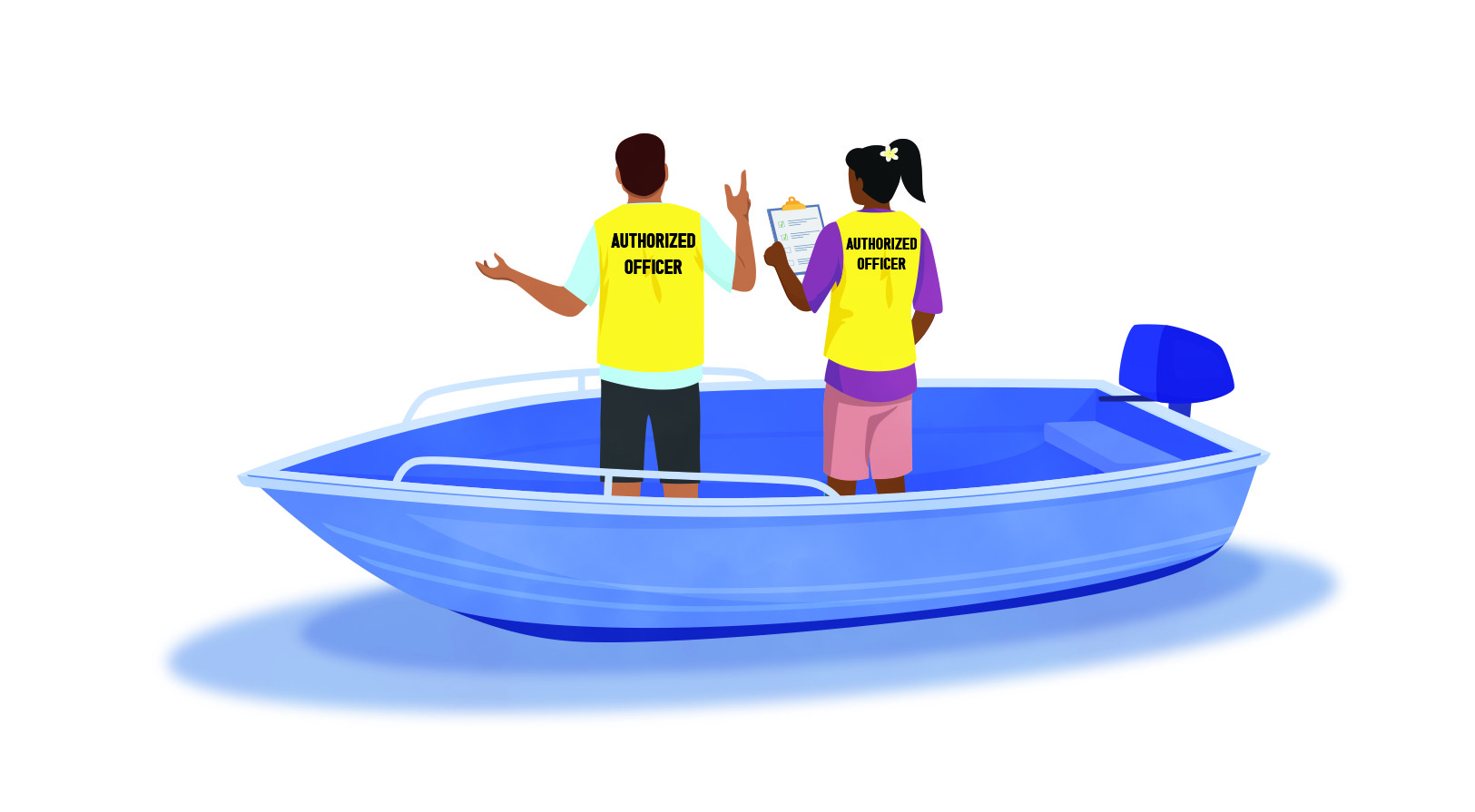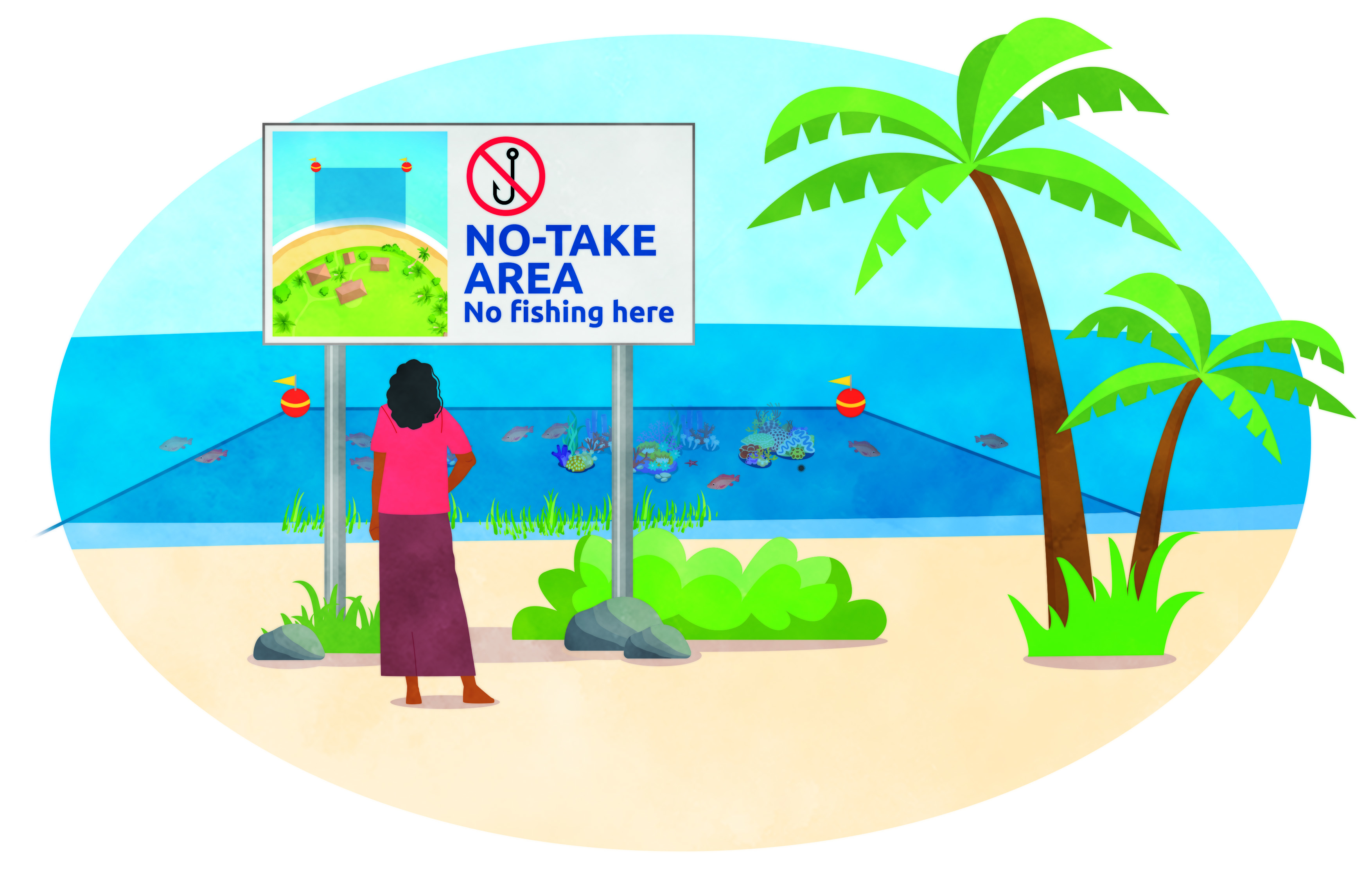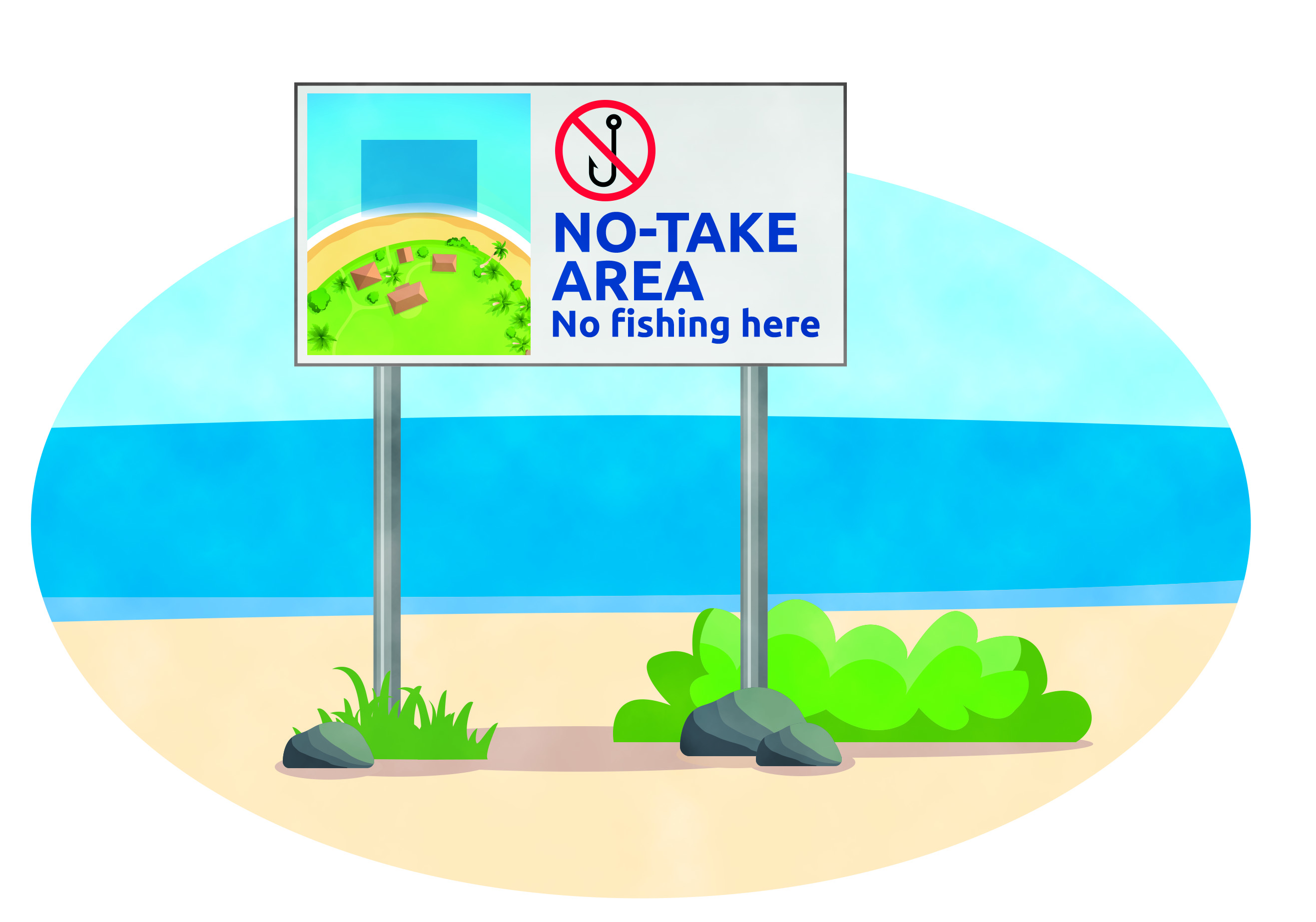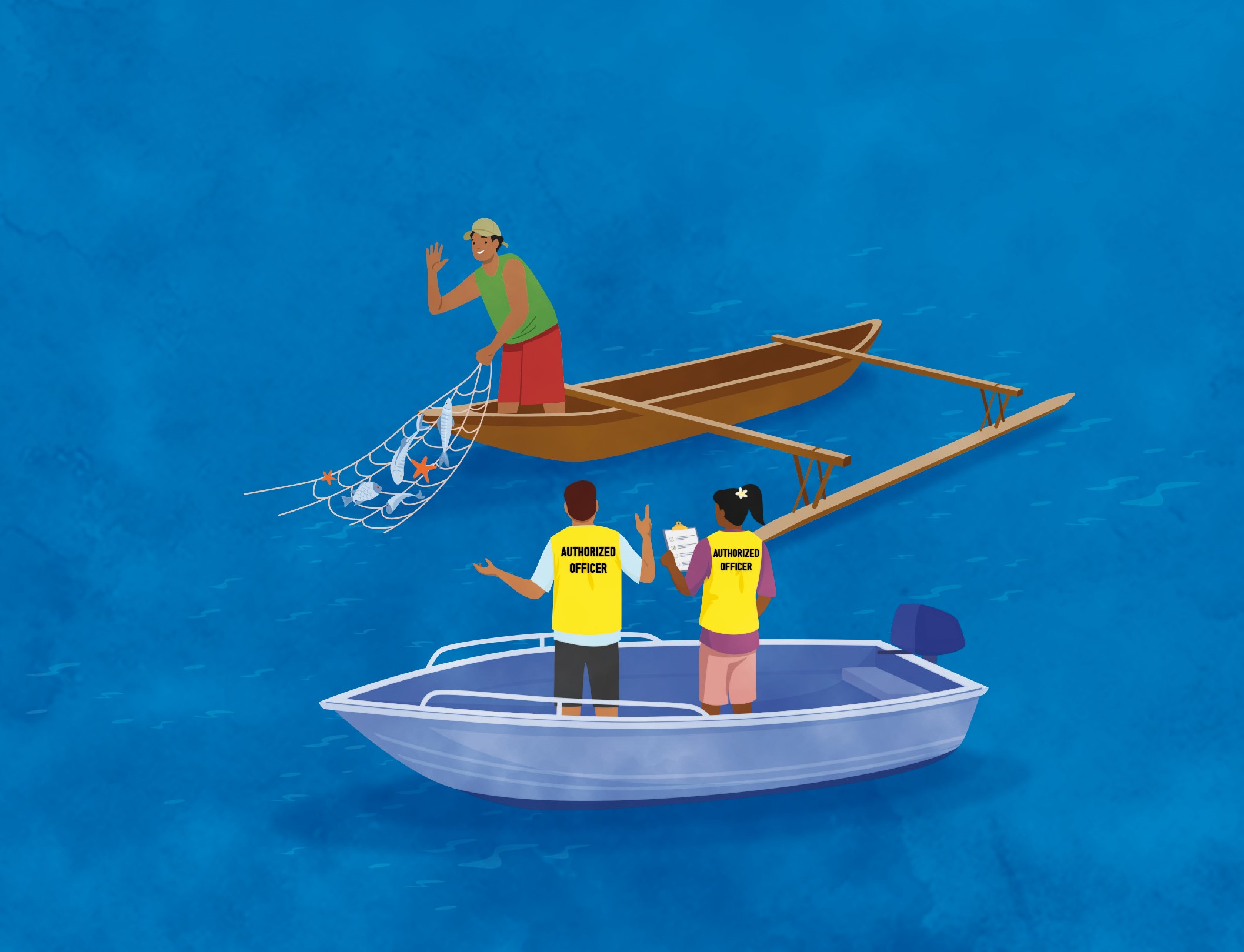What is marine resources enforcement?
Enforcement is the execution of processes to ensure compliance with laws, rules or obligations that provides communities continued access to their marine resources. Enforcement includes ensuring that the rules are understood by all community members.

What is the purpose of marine resources enforcement?
If community members have not been involved in the development of marine resource rules, some might ignore them, others might not even be aware of them. Community involvement, understanding and enforcement are necessary to ensure healthy and sustainable fisheries for present and future generations.

When and where should we use enforcement?
All Pacific Island countries and territories generally have one or more government agencies that are responsible for managing their coastal zones and marine resources and legislation designed to protect various marine resources. However, government fisheries departments and agencies find it difficult to enforce regulations in communities that are distributed over large marine territories. For these reasons, communities themselves must support and enforce sensible government regulations, and also make their own community rules to protect their marine resources.
It is in the government’s interest to empower communities to manage their marine resources and engage communities in national decisions on fishing rules to encourage compliance and enforcement support.
How can we implement the enforcement of regulations?
Under community-based fisheries management, communities, in collaboration with the government, accept responsibility for imposing and enforcing their own controls on their marine resources as well as ensuring compliance with existing national laws.
In communities with a direct interest in the success of the management of their marine resources, compliance with controls on fishing and harvesting may be high. Many communities actively enforce their own rules, and often apply severe penalties, including traditional fines for infringements. The best way of ensuring controls are respected and followed is through the participation of all community members, publicity and education. Existing community meetings should include items on prohibitions and rules relating to the management of marine resources and the marine environment.
To ensure full participation, it is important to involve youths and women in making community decisions as they are both fishers and resource users. Women are more likely to have a longer term and intergenerational view relating to the management of marine resources. For example, women collecting sea grapes (Caulerpa spp.) habitually place some of their catch back into nearby reef crevices where they grow and provide future food. The education of children is important even if results are long-term.

Community rules must be made known, not only to community members, but also those from neighbouring communities, as well as visitors. It is also beneficial to involve these neighbouring communities in the process of making community rules. Visible signs can be used to indicate reserves that highly regulate the catching or harvesting of marine resources. Although prosecution should be regarded as a measure of last resort, necessary regulations must be rigorously enforced. Ideally the best strategy is not so much in enforcing the rules, but in convincing community members that they are necessary.
What are the benefits, problems and limitations of enforcing regulations?
Enforcing measures to protect populations of marine resources and their habitats ensures that fish catches remain sustainable and continue to provide food for local communities. If governments set fishing regulations that are evidence-based and imposed for the best of intentions, these should be supported and enforced by community members.
Problems can occur in cases where community leaders impose rules that restrict fishing methods or the numbers and types of fish caught. The task of convincing the community that the rules are necessary is a difficult one. The most effective way of ensuring that rules are respected is by involving all community members, including youths and women, in the establishment of rules and through education.
How do we know if regulation enforcement is working?
The main indication of success is an increased number of community members that are aware of the existence of the rules and accept and comply with them. Communities can assign respected members of the community as wardens, or stewards, to monitor understanding and compliance.

What other issues must be considered?
All tools described in the Fish smart rules section must be applied considering the projected impacts of climate change. For example, rising sea temperatures can alter the time of year when coral reef fishes spawn, which would then alter the timing of bans, so would require flexibility to change annually.
Fish habitats will also be affected. Warmer seas will continue to produce more episodes of coral bleaching, caused by the loss of the tiny plants living within the coral tissue. Carbon dioxide in the atmosphere is also increasing. As more of it dissolves into the ocean, the water becomes increasingly acidic, making it harder for species of corals and molluscs, which need calcium carbonate, to build their skeletons and shells.

